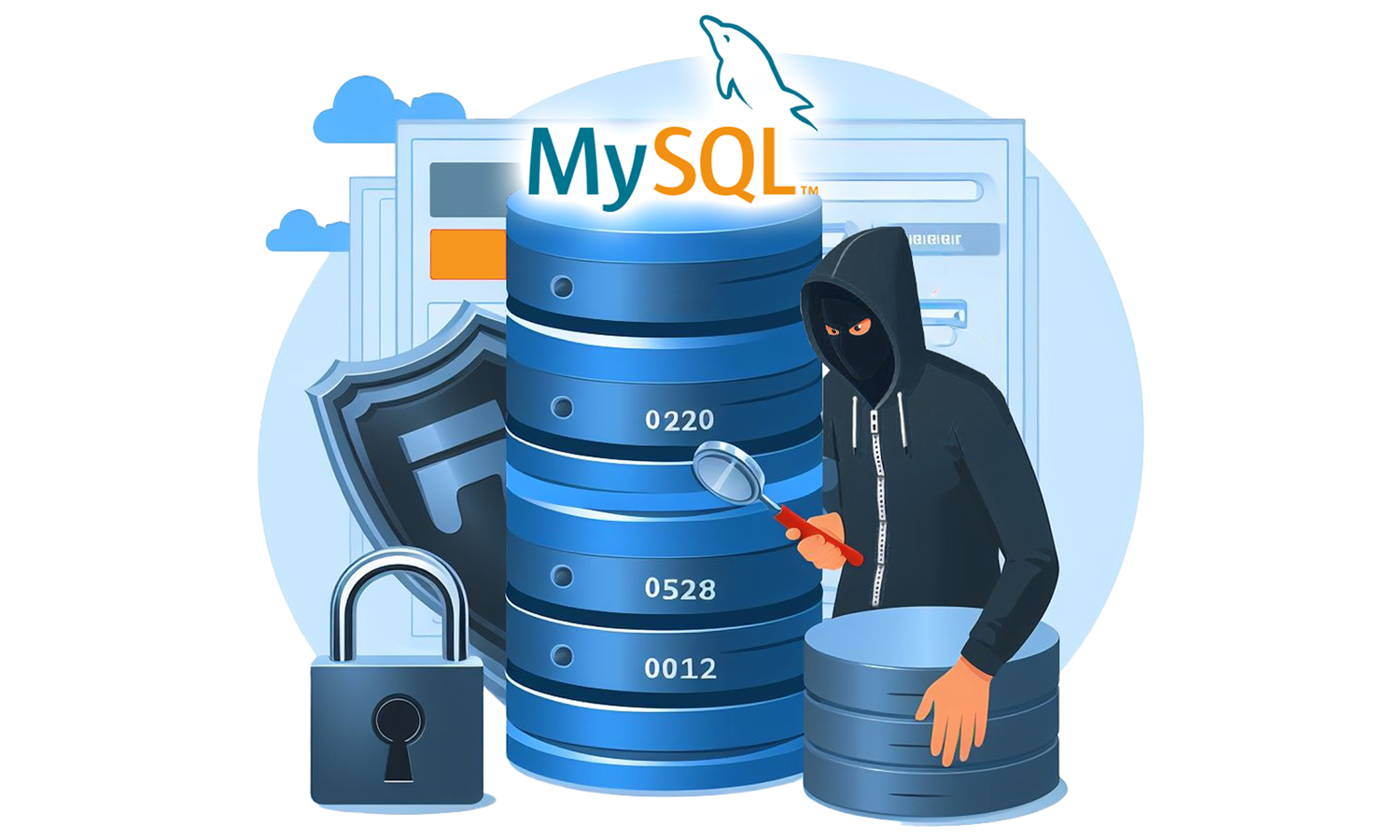
How to Secure MySQL Database from Hackers

In the digital age, the security of databases is paramount for businesses of all sizes. As cyber threats continue to evolve, it’s crucial to understand how to secure MySQL database from hackers. This article will provide a comprehensive guide to safeguarding your MySQL databases against unauthorized access and ensuring the integrity of your data.
Understanding the Threats to Your MySQL Database
Before we delve into the steps to secure MySQL database from hackers, it’s important to recognize the types of threats that databases face. Cybercriminals often exploit vulnerabilities in database systems to gain unauthorized access, steal sensitive information, or even hold data for ransom. Common threats include SQL injection attacks, brute force attacks, and exploiting outdated software vulnerabilities.
How to Secure MySQL Database from Hackers: Basic Steps
Securing a MySQL database involves several layers of protection. There are several built-in tools available in MySQL: Access Control Lists (ACLs), SSL Support, Password Management (Password policy, Password encryption). These tools are part of the MySQL security model and are essential for maintaining a secure database environment. Access Control Lists help manage user permissions, SSL Support enables encrypted connections, Password Management ensures strong authentication. Here are the fundamental steps to consider:
- Harden MySQL Servers: Ensure that your MySQL servers are configured with the strictest security settings to minimize vulnerabilities.
- Minimize Exposure: Limit the database’s exposure to the internet to reduce the attack surface that hackers can exploit.
- Strong Authentication: Implement secure authentication mechanisms and enforce the use of strong, complex passwords.
- Regular Backups: Maintain an automatic server backup system and keep a vigilant eye on your backup logs.
- Firewall Configuration: Properly configure both database and system firewalls to control incoming and outgoing traffic.
Advanced Security Measures
Beyond the basics, there are advanced strategies to further secure MySQL database from hackers:
- Use encryption for data at rest and in transit to ensure that even if data is intercepted, it remains unreadable to unauthorized parties. Please request information about DataSunrise’s encrypted database communication capabilities from our support team beforehand, as the encryption process necessitates special treatment.
- Implement regular security audits and vulnerability assessments to identify and address potential security gaps.
- Stay updated with the latest security patches and updates for your MySQL database and associated software.
DataSunrise’s Role in MySQL Database Security
DataSunrise offers a suite of tools that enhance the security of your MySQL databases:
- MySQL Activity Monitoring: Keep track of all database activities to detect and respond to suspicious behavior in real-time.
- MySQL Data Masking: Protect sensitive data by obscuring it from unauthorized users, ensuring that even if data is accessed, it cannot be misused.
- MySQL Firewall: Defend against SQL injection and other database-specific attacks with a tailored firewall solution.
- MySQL Performance Monitoring: Monitor the performance of your database to identify potential security issues related to resource usage.
- Real-Time Alerting: The system sends immediate notifications via email and messengers to administrators about suspicious activities.
- Regulatory Compliance Automation: DataSunrise’s self-managing regulatory compliance automation requires no manual intervention.
Incorporating these tools into your security strategy can provide an additional layer of defense, making it significantly more challenging for hackers to compromise your databases.
Finding Security Resources for MySQL: Where to Look
You can find security information on MySQL in various places, including the official MySQL documentation, which extensively details the built-in security features and best practices for securing your MySQL database.
For specific security vulnerabilities and exploits, websites like exploit-db list known issues such as CVEs (Common Vulnerabilities and Exposures) that affect MySQL and its derivatives. For instance, CVE-2023-22078 and CVE-2023-21963 are examples of vulnerabilities that have been identified and documented for MySQL.
Moreover, for a comprehensive approach to MySQL database security, you can refer to the professional information provided by DataSunrise, which includes best practices for database security, such as hardening MySQL servers, minimizing database exposure to the internet, using secure authentication and strong passwords, and configuring database and system firewalls. DataSunrise also offers specialized tools like MySQL Activity Monitoring, MySQL Data Masking, MySQL Firewall, and MySQL Performance Monitoring to enhance the security of your MySQL databases.
Lastly, it’s important to regularly monitor security advisories and updates from Oracle, the company that manages MySQL, especially around the time of their Critical Patch Update releases, which address a multitude of security issues and vulnerabilities. By staying informed and utilizing the right tools and practices, you can effectively secure your MySQL database from hackers.
Conclusion
To secure a MySQL database from hackers, it’s essential to adopt a multi-faceted approach that includes both basic security practices and advanced protective measures. By hardening servers, minimizing exposure, using strong authentication, maintaining backups, and configuring firewalls, businesses can create a robust defense against cyber threats. Additionally, leveraging the capabilities of DataSunrise’s security tools can further enhance the protection of your MySQL databases.
Remember, database security is not a one-time task but an ongoing process. Staying vigilant, keeping software up to date, and continuously monitoring for suspicious activities are key to ensuring that your data remains secure in an ever-changing threat landscape.
At DataSunrise, we offer a suite of robust features including Activity Monitoring, Data Masking, Firewall protection, Performance Monitoring, Real-Time Alerting, and Regulatory Compliance Automation, allowing you to fine-tune your data protection strategies according to your unique requirements. Whether it’s access control, audit, data discovery, or data compliance, our platform empowers you to customize your data security measures with precision and ease. Explore the comprehensive functionality of DataSunrise, extending beyond the mentioned capabilities, with exceptional coverage across various databases, including MySQL. Contact our team today for an insightful demonstration, and unlock the full potential of data security with DataSunrise.
Further reading
Why MySQL Is the Next Big Target for Cyberattacks
